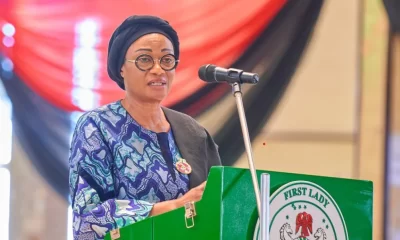The Nigerian Communications Commission (NCC) has outlined what it termed ‘Eight Pillars’ that will drive the country’s digital economy policy and strategy that is being championed by the federal government through the Ministry of Communications and Digital Economy.
The eight pillars as contained in the NCC’s Strategic Management Plan 2020-2024 tagged Aspire 2024, are:
Developmental Regulation: Effectively regulate the ICT & digital sector in a way that enables the development
Digital Literacy & Skills: Providing policy backing for massive training of Nigerians in digital literacy & skills
Solid Infrastructure: Development of fixed & mobile infrastructure to deepen broadband penetration
Service Infrastructure: Support for Government digital services and provision of robust digital platforms to drive the digital economy
Soft Infrastructure: Strengthening public confidence in the use of digital technologies
Digital Economy Development & Promotion: Development of a vibrant digital ecosystem that supports Innovation-Driven Enterprises (IDE) and Micro, Small & Medium Enterprises (MSME).
READ ALSO: Encomiums as NCC’s principal project manager, Okodu, Bows out of NCC
Digital Society and Emerging Technologies: Tying development of the digital economy to indices of the wellbeing of ordinary citizens
Indigenous Content Promotion & Adoption: Provision of a policy framework that gives preference to digitally skilled Nigerians in government-funded projects.
The vision of Nigeria’s digital economy strategy is: “To digitally transform the economy of Nigeria into a leading global economy providing quality life and digital opportunities for all her citizens.”
While the mission is: “We build a nation where every citizen, business and institution can utilize readily accessible digital technologies for improving themselves and developing the national economy.”
According to a recent Nigeria Digital Economy Diagnostic Report by the World Bank released 2019, accelerating access to digital technologies spurs innovation, efficiency, and productivity, and as a result brings about choice and opportunities for greater growth and inclusion.
READ ALSO: NIN-SIM Linkage: NCC disowns viral web link, recruitment exercise
The report shows that many Nigerian citizens and businesses remain excluded from the digital ecosystem as a result of limited access to broadband and non-availability of adequate devices (mobile devices and computers) to fully utilize the Internet.
In order to deliver on Governments’ 2030 aspirations of greater access to the digital economy and meet the bold objective of creating 100 million jobs in Nigeria, the country needs to increase investment in infrastructure, create an enabling regulatory environment for the digital economy to grow.
In addition, the Government should pursue radical reforms that bring about improved skills and a more competitive digital job market, support public-private partnerships to stimulate and sustain demand for the use of digital platforms, and improve the current business climate to boost more investment opportunities.

 Entertainment7 days ago
Entertainment7 days ago
 Entertainment4 days ago
Entertainment4 days ago
 Comments and Issues7 days ago
Comments and Issues7 days ago
 Comments and Issues7 days ago
Comments and Issues7 days ago
 Business1 week ago
Business1 week ago
 Health6 days ago
Health6 days ago
 Comments and Issues7 days ago
Comments and Issues7 days ago
 Editorial Opinion1 week ago
Editorial Opinion1 week ago

